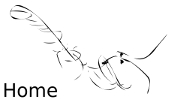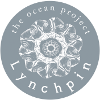Living Data:
Inclusion
2018 Conversations
Disclaimers, Copyrights and Citations
Conversations/Index 2010 2011 2012 2013 2014 2015 2016 2017 2018 2019 2020 2021 2022 2023 2024
Humans are very very special animals
Distinguished Professor Lesley Hughes identifies as a citizen of the world. At the workshop following the 2018 Boden Conference she reflects on what inspired her to be a scientist and to study climate change and animal behaviour.
On Friday 11th May I speak with Lesley.
Lisa:
What country do you connect most strongly with?
Lesley
Well I've lived in Australia all my life except for about two years when I lived in Boston in the US. So I'm very much an Australian and I love travelling so I also like to think I'm a global citizen.
Lisa:
What stirred you to be a scientist?
I became a scientist because I loved animals and I spent most of my childhood catching lizards and putting snails in jars and wandering around the bush that was at the back of my house. And I decided that I really wanted to study animals, to be a zoologist, so that set me on doing a science degree so I did a science degree majoring in zoology and ecology and then eventually went on to do a pHd where I spent four years following ants around the bush.
Lisa:
Ants.
Lesley:
Ants.
Lisa:
Who was your greatest inspiration to study ants?
Lesley:
I don't think I had an inspiration to study ants. I think there were people like, a behavioural ecologist called Konrad Lorenz, that got me into behaviour in the first place, though I never met him personally of course, but I was always fascinated by animals and what they did. And I also became interested in doing experiments to understand behaviour better, and from a practical perspective it's just easier to do experiments on small things like ants than on larger furry things, which is what I always thought originally I would be a researcher of.
Lisa:
Do you see humans as animals?
Lesley:
Yes they are. They have a lot of animal characteristics but they're also very very special animals because unlike most animals we are absolutely capable of destroying and modifying our own environment, whereas most animals don't soil their own nest and I'm afraid humans do. .
Lisa:
Yes. Are you an optimist?
Lesley:
It depends on the day, and I think at any one time I'm an optimist and pessimist simultaneously. I think, especially when you work on climate change science, you have a sort of partitioned psyche. If you really think about it in the middle of the night, I get deeply pessimistic and deeply terrified about the future, and about the future for my children. But at the same time I know that if I don't have optimism and hope there's not much point in me doing anything. And I think if we don't have hope then we give up and if we give up then all is lost. So I think there's a moral imperative to remain optimistic.
Lisa:
Was it hope that inspired you to work with the artist Josh Wodak?
Lesley:
Well, Josh asked me to help out, and I do think that art and science should come together more often. And I think getting a message like climate change across to the general public - there's no one single pathway that works best in doing that because the public is a very diverse audience and different messages resonate with different people at different times, so I think we all can deliver a useful message, be we a scientist or an artist or something else.












